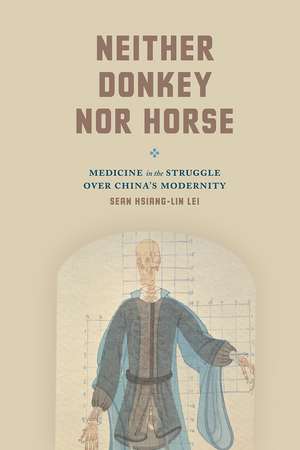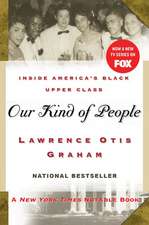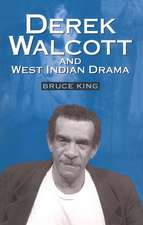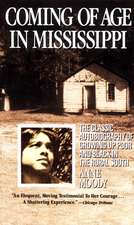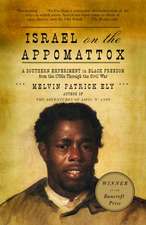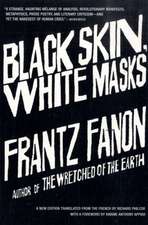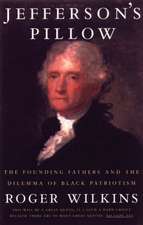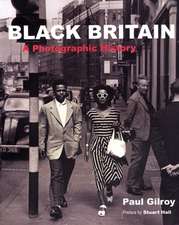Neither Donkey nor Horse: Medicine in the Struggle over China's Modernity: Studies of the Weatherhead East Asian Institute
Autor Sean Hsiang-lin Leien Limba Engleză Paperback – 18 iul 2016
Neither Donkey nor Horse tells the story of how Chinese medicine was transformed from the antithesis of modernity in the early twentieth century into a potent symbol of and vehicle for China’s exploration of its own modernity half a century later. Instead of viewing this transition as derivative of the political history of modern China, Sean Hsiang-lin Lei argues that China’s medical history had a life of its own, one that at times directly influenced the ideological struggle over the meaning of China’s modernity and the Chinese state.
Far from being a remnant of China’s premodern past, Chinese medicine in the twentieth century coevolved with Western medicine and the Nationalist state, undergoing a profound transformation—institutionally, epistemologically, and materially—that resulted in the creation of a modern Chinese medicine. This new medicine was derided as “neither donkey nor horse” because it necessarily betrayed both of the parental traditions and therefore was doomed to fail. Yet this hybrid medicine survived, through self-innovation and negotiation, thus challenging the conception of modernity that rejected the possibility of productive crossbreeding between the modern and the traditional.
By exploring the production of modern Chinese medicine and China’s modernity in tandem, Lei offers both a political history of medicine and a medical history of the Chinese state.
Far from being a remnant of China’s premodern past, Chinese medicine in the twentieth century coevolved with Western medicine and the Nationalist state, undergoing a profound transformation—institutionally, epistemologically, and materially—that resulted in the creation of a modern Chinese medicine. This new medicine was derided as “neither donkey nor horse” because it necessarily betrayed both of the parental traditions and therefore was doomed to fail. Yet this hybrid medicine survived, through self-innovation and negotiation, thus challenging the conception of modernity that rejected the possibility of productive crossbreeding between the modern and the traditional.
By exploring the production of modern Chinese medicine and China’s modernity in tandem, Lei offers both a political history of medicine and a medical history of the Chinese state.
Din seria Studies of the Weatherhead East Asian Institute
-
 Preț: 267.74 lei
Preț: 267.74 lei -
 Preț: 160.40 lei
Preț: 160.40 lei -
 Preț: 267.31 lei
Preț: 267.31 lei -
 Preț: 212.43 lei
Preț: 212.43 lei -
 Preț: 239.61 lei
Preț: 239.61 lei -
 Preț: 172.24 lei
Preț: 172.24 lei -
 Preț: 211.82 lei
Preț: 211.82 lei - 23%
 Preț: 507.74 lei
Preț: 507.74 lei -
 Preț: 210.70 lei
Preț: 210.70 lei -
 Preț: 518.09 lei
Preț: 518.09 lei - 19%
 Preț: 645.98 lei
Preț: 645.98 lei - 19%
 Preț: 446.01 lei
Preț: 446.01 lei - 19%
 Preț: 505.45 lei
Preț: 505.45 lei - 19%
 Preț: 567.04 lei
Preț: 567.04 lei - 46%
 Preț: 116.77 lei
Preț: 116.77 lei -
 Preț: 142.85 lei
Preț: 142.85 lei - 7%
 Preț: 323.97 lei
Preț: 323.97 lei - 14%
 Preț: 457.40 lei
Preț: 457.40 lei - 17%
 Preț: 154.26 lei
Preț: 154.26 lei - 23%
 Preț: 571.41 lei
Preț: 571.41 lei - 21%
 Preț: 257.40 lei
Preț: 257.40 lei
Preț: 213.80 lei
Preț vechi: 225.06 lei
-5% Nou
Puncte Express: 321
Preț estimativ în valută:
40.91€ • 42.82$ • 34.05£
40.91€ • 42.82$ • 34.05£
Carte tipărită la comandă
Livrare economică 31 martie-14 aprilie
Preluare comenzi: 021 569.72.76
Specificații
ISBN-13: 9780226379401
ISBN-10: 022637940X
Pagini: 394
Ilustrații: 3 halftones, 1 line drawing
Dimensiuni: 152 x 229 x 25 mm
Greutate: 0.51 kg
Editura: University of Chicago Press
Colecția University of Chicago Press
Seria Studies of the Weatherhead East Asian Institute
ISBN-10: 022637940X
Pagini: 394
Ilustrații: 3 halftones, 1 line drawing
Dimensiuni: 152 x 229 x 25 mm
Greutate: 0.51 kg
Editura: University of Chicago Press
Colecția University of Chicago Press
Seria Studies of the Weatherhead East Asian Institute
Notă biografică
Sean Hsiang-lin Lei is associate research fellow at the Institute of Modern History, Academia Sinica, Taiwan; associate professor at the Institute of Science, Technology, and Society at National Yang-Ming University; and a member of the Institute for Advanced Study in Princeton. He lives in Taipei, Taiwan.
Cuprins
1. Introduction
When Chinese Medicine Encountered the State
Beyond the Dual History of Tradition and Modernity
Toward a Coevolutionary History
China’s Modernity
The Discourse of Modernity
Neither Donkey nor Horse
Conventions
2. Sovereignty and the Microscope: The Containment of the Manchurian Plague, 1910–11
Not Believing That “This Plague Could Be Infectious”
Pneumonic Plague versus Bubonic Plague
“The Most Brutal Policies Seen in Four Thousand Years”
Challenges from Chinese Medicine: Hong Kong versus Manchuria
Chuanran: Extending a Network of Infected Individuals
Avoiding Epidemics
Joining the Global Surveillance System
Conclusion: The Social Characteristics of the Manchurian Plague
3. Connecting Medicine with the State: From Missionary Medicine to Public Health, 1860–1928
Missionary Medicine
Western Medicine in Late Qing China versus Meiji Japan
The First Generation of Chinese Practitioners of Western Medicine
Western Medicine as a Public Enterprise
“Public Health: Time Not Ripe for Large Work,” 1914–1924
The Ministry of Health and the Medical Obligations of Modern Government, 1926–27
Conclusion
4. Imagining the Relationship between Chinese Medicine and Western Medicine, 1890–1928
Converging Chinese and Western Medicine in the Late 1890s
Non-Identity between the Meridian Channels and the Blood Vessels
Yu Yan and the Tripartition of Chinese Medicine
To Avoid the Place of Confrontation
Ephedrine and Scientific Research on Nationally Produced Drugs
Inventing an Empirical Tradition of Chinese Medicine
Conclusion
5. The Chinese Medical Revolution and the National Medicine Movement
The Chinese Medical Revolution
Controversy over Legalizing Schools of Chinese Medicine
Abolishing Chinese Medicine: The Proposal of 1929
The March Seventeenth Demonstration
The Ambivalent Meaning of Guoyi
The Delegation to Nanjing
Envisioning National Medicine
Conclusion
6. Visualizing Health Care in 1930s Shanghai
Reading a Chart of the Medical Environment in Shanghai
Western Medicine: Consolidation and Boundary-Drawing
Chinese Medicine: Fragmentation and Disintegration
Systematizing Chinese Medicine
Conclusion
7. Science as a Verb: Scientizing Chinese Medicine and the Rise of Mongrel Medicine
The Institute of National Medicine
The Chinese Scientization Movement
The Polemic of Scientizing Chinese Medicine: Three Positions
Embracing Scientization and Abandoning Qi-Transformation
Rejecting Scientization
Reassembling Chinese Medicine: Acupuncture and Zhuyou Exorcism
The Challenge of “Mongrel Medicine”
Conclusion
8. The Germ Theory and the Prehistory of “Pattern Differentiation and Treatment Determination”
Do You Recognize the Existence of Infectious Diseases?
Notifiable Infectious Disease
Unifying Nosological Nomenclature and Translating Typhoid Fever
Incorporating the Germ Theory into Chinese Medicine
Pattern versus Disease
A Prehistory of “Pattern Differentiation and Treatment Determination”
Conclusion
9. Research Design as Political Strategy: The Birth of the New Antimalaria Drug Changshan
Changshan as a Research Anomaly
Scientific Research on Nationally Produced Drugs
Stage One: Overcoming the Barrier to Entry
Stage Two: Re-networking Changshan
Two Research Protocols: 1–2–3–4–5 versus 5–4–3–2–1
Research Protocol as Political Strategy
Conclusion: The Politics of Knowledge and the Regime of Value
10. State Medicine for Rural China, 1929–1949
Defining China’s Medical Problem
Discovering Rural China
The Ding County Model of Community Medicine
State Medicine and the Chinese Medical Association
State Medicine and Local Self-Government
The Issue of Eliminating Village Health Workers
Chinese Medicine for Rural China
11. Conclusion: Thinking with Modern Chinese Medicine
Medicine and the State
Creation of Values
Medicine and China’s Modernity: Nationalist versus Communist
Chinese Medicine and Science and Technology Studies
Acknowledgments
Notes
Index
When Chinese Medicine Encountered the State
Beyond the Dual History of Tradition and Modernity
Toward a Coevolutionary History
China’s Modernity
The Discourse of Modernity
Neither Donkey nor Horse
Conventions
2. Sovereignty and the Microscope: The Containment of the Manchurian Plague, 1910–11
Not Believing That “This Plague Could Be Infectious”
Pneumonic Plague versus Bubonic Plague
“The Most Brutal Policies Seen in Four Thousand Years”
Challenges from Chinese Medicine: Hong Kong versus Manchuria
Chuanran: Extending a Network of Infected Individuals
Avoiding Epidemics
Joining the Global Surveillance System
Conclusion: The Social Characteristics of the Manchurian Plague
3. Connecting Medicine with the State: From Missionary Medicine to Public Health, 1860–1928
Missionary Medicine
Western Medicine in Late Qing China versus Meiji Japan
The First Generation of Chinese Practitioners of Western Medicine
Western Medicine as a Public Enterprise
“Public Health: Time Not Ripe for Large Work,” 1914–1924
The Ministry of Health and the Medical Obligations of Modern Government, 1926–27
Conclusion
4. Imagining the Relationship between Chinese Medicine and Western Medicine, 1890–1928
Converging Chinese and Western Medicine in the Late 1890s
Non-Identity between the Meridian Channels and the Blood Vessels
Yu Yan and the Tripartition of Chinese Medicine
To Avoid the Place of Confrontation
Ephedrine and Scientific Research on Nationally Produced Drugs
Inventing an Empirical Tradition of Chinese Medicine
Conclusion
5. The Chinese Medical Revolution and the National Medicine Movement
The Chinese Medical Revolution
Controversy over Legalizing Schools of Chinese Medicine
Abolishing Chinese Medicine: The Proposal of 1929
The March Seventeenth Demonstration
The Ambivalent Meaning of Guoyi
The Delegation to Nanjing
Envisioning National Medicine
Conclusion
6. Visualizing Health Care in 1930s Shanghai
Reading a Chart of the Medical Environment in Shanghai
Western Medicine: Consolidation and Boundary-Drawing
Chinese Medicine: Fragmentation and Disintegration
Systematizing Chinese Medicine
Conclusion
7. Science as a Verb: Scientizing Chinese Medicine and the Rise of Mongrel Medicine
The Institute of National Medicine
The Chinese Scientization Movement
The Polemic of Scientizing Chinese Medicine: Three Positions
Embracing Scientization and Abandoning Qi-Transformation
Rejecting Scientization
Reassembling Chinese Medicine: Acupuncture and Zhuyou Exorcism
The Challenge of “Mongrel Medicine”
Conclusion
8. The Germ Theory and the Prehistory of “Pattern Differentiation and Treatment Determination”
Do You Recognize the Existence of Infectious Diseases?
Notifiable Infectious Disease
Unifying Nosological Nomenclature and Translating Typhoid Fever
Incorporating the Germ Theory into Chinese Medicine
Pattern versus Disease
A Prehistory of “Pattern Differentiation and Treatment Determination”
Conclusion
9. Research Design as Political Strategy: The Birth of the New Antimalaria Drug Changshan
Changshan as a Research Anomaly
Scientific Research on Nationally Produced Drugs
Stage One: Overcoming the Barrier to Entry
Stage Two: Re-networking Changshan
Two Research Protocols: 1–2–3–4–5 versus 5–4–3–2–1
Research Protocol as Political Strategy
Conclusion: The Politics of Knowledge and the Regime of Value
10. State Medicine for Rural China, 1929–1949
Defining China’s Medical Problem
Discovering Rural China
The Ding County Model of Community Medicine
State Medicine and the Chinese Medical Association
State Medicine and Local Self-Government
The Issue of Eliminating Village Health Workers
Chinese Medicine for Rural China
11. Conclusion: Thinking with Modern Chinese Medicine
Medicine and the State
Creation of Values
Medicine and China’s Modernity: Nationalist versus Communist
Chinese Medicine and Science and Technology Studies
Acknowledgments
Notes
Index
Recenzii
"Neither Donkey Nor Horse is thoroughly engaging, theoretically informed, and impeccably researched. This complex story, though acknowledging the intricacies and vagaries of history, does not get bogged down in its own detail. Instead, Lei’s skillful narrative hand remains positioned above the fray, ready to guide the reader across thematic and temporal divides. It is a fascinating story, and one that will do much to advance the field of medical history in the non-West."
"This book is equally about the surprising and dynamic history of Chinese medicine, Western medicine, and the modern Chinese state, and it deserves the careful attention of historians of China and state-building as much as historians of medicine and science. . . . Lei's intervention provides the most sophisticated and clear explanation yet of the issues involved."
"Neither Donkey Nor Horse is a tremendous accomplishment that marks Lei as a leading historian of Chinese medicine and a major thinker in acience and technology studies. With this book, Lei has set a conceptual framework that will shape all future work on the subject."
"It is difficult to overestimate the value of this book. Empirically rich and theoretically sophisticated, it presents the most comprehensive analysis to date of medical developments in twentieth-century China. This book delights at every turn; every chapter uses exhaustive research to build a sophisticated argument. It will be duly recognized as a masterpiece."
"In conceptualizing how the insights of critical interdisciplines—postcolonial studies or science studies—might be incorporated into the field of Asian history, two possible scenarios come to mind: in one, critical vocabularies are selectively adopted but the overall enterprise remains unmoved; in another, the foundational issues at stake in the interdiscipline become themselves the subject of the Asia historian, thus transforming the questions that are asked and the way research is carried out. It is the latter approach that Lei brilliantly demonstrates in Neither Donkey Nor Horse."
“If you are going to read just one book on the modern history of Chinese medicine, this is the work to read. Lei’s analysis of the entwinement of medicine, science, modernity, and the state is brilliantly original and persuasive, and argued with admirable clarity. Neither Donkey nor Horse is a major contribution to science studies and the history of global health, as well as to the study of twentieth-century China.”
“Neither Donkey nor Horse is a tour de force of how both Western and Chinese medicine played central roles not only in Chinese modernity but also the formation of the state in Republican China. Lei thus adroitly relates the politics of medicine and debates over making Chinese medicine more scientific to the big themes of nationalism, the state, and modernity that dominated the political struggles of early twentieth-century China.”
“Reaching far beyond the history of modern China, Neither Donkey nor Horse challenges conventional understanding of modernity, science, and state power through an intellectual and social history of medical debate and development in East Asia from the late nineteenth century forward. This is a thoughtful and meticulously researched investigation of transnational modernizing processes in the twentieth century as they touched down and transformed worlds in China. The book demonstrates that medical knowledge and practice, whether ‘modern’ or ‘traditional,’ historicized or fixed as policy, are nowhere innocent of politics, culture, and social hierarchy. It offers surprising historical lessons for everyone interested in science and local knowledge, socialism and capitalism, institutions and ideas about nature as they weave together in modern regimes of health and population governance.”
“In this insightful and provocative book, Lei shows us what it meant to practice ‘modern’ medicine in Mao Zedong’s semicolonial and semifeudal society. Drawing on rich historical sources, Neither Donkey nor Horse reveals that modern medicine will always be mongrel medicine. Importantly, Lei gives us the critical postcolonial genealogy for ‘Traditional Chinese Medicine,’ the epitome of Chinese modernity, now a global phenomenon.”
“Neither Donkey nor Horse is a major work by the leading scholar in the field of modern Chinese medical history. Lei argues that what we now know as traditional Chinese medicine as it emerged as a discourse in the early twentieth century was fundamentally shaped by the encounter with Western medicine and the relationship with the state that this dictated. Chinese medicine was something new that was created during this period in response to themes with Western biomedicine as traditional practitioners sought social mobility through participation in the state. Lei’s argument is backed up by research of the highest standard: his knowledge of the historical sources is outstanding, and he is impressively familiar with the secondary and theoretical literature in both English and Chinese. His book will be of interest not only to historians of Republican China but also to those interested in the history of science more widely.”
"Neither Donkey nor Horse is an important book for the global community of traditional medicines. It
deserves to be accompanied by countless more scholarly works about coevolution and adaptation by traditional medicine. this book is an important read for all types of medicine practitioners. Everyone will find something of interest regarding research design, policy development, healthcare administration, medical education, professional organization, or infectious disease control and response. These areas are as relevant today as they were a century ago. As new global health issues, such as the outbreak of the Zika and the Ebola viruses, emerge and require continued adaptation of healthcare policy and research methods, the lessons revealed in this story will no doubt continue to be essential."
deserves to be accompanied by countless more scholarly works about coevolution and adaptation by traditional medicine. this book is an important read for all types of medicine practitioners. Everyone will find something of interest regarding research design, policy development, healthcare administration, medical education, professional organization, or infectious disease control and response. These areas are as relevant today as they were a century ago. As new global health issues, such as the outbreak of the Zika and the Ebola viruses, emerge and require continued adaptation of healthcare policy and research methods, the lessons revealed in this story will no doubt continue to be essential."
"Whereas previous studies have tended to shy away from delving directly into the encounter between Chinese-style and Western-style medicine, this book represents the most innovative and magisterial treatment to date of the transformation of Chinese medicine in the first half of the twentieth century."
"Going beyond the simplistic polarities of modern versus traditional, or biomedical science versus traditional Chinese medical knowledge, Lei claims that Chinese medicine practitioners, struggling in the field of the state, were the agents of a profound transformation of Chinese medicine, creating a mongrel medicine that may or may not be able to reproduce itself in the future. By discussing the development of bilateral and organic relations between the state and medicine, Lei has vividly described the reassembling of Chinese medicine as a part of the realisation of China’s own version of modernity. The great contemporary relevance of this book lies in pointing out diverse aspects of the ideas and phenomena that we have often taken for granted as being homogeneous, such as modernity and science."
"Neither Donkey nor Horse is intensely argued and contains a great wealth of materials and information. It offers both a panoramic view and strong theses. Its analysis is sharp and stimulating. Although Lei is theory-minded, his prose is clear and accessible. The book is easily
the best scholarly work on the history of Chinese medicine of the Republican period. It will be essential reading for anyone interested in the history of modern Chinese medicine and indeed should be an important reference for students of the history of Republican China."
the best scholarly work on the history of Chinese medicine of the Republican period. It will be essential reading for anyone interested in the history of modern Chinese medicine and indeed should be an important reference for students of the history of Republican China."
“Lei’s book is full of sophisticated analyses, cogent arguments, and illuminating insights. The brilliant use of the diary of Nationalist officials to be read alongside official documents and media reports opens up a window on private perceptions of largely public events.”
